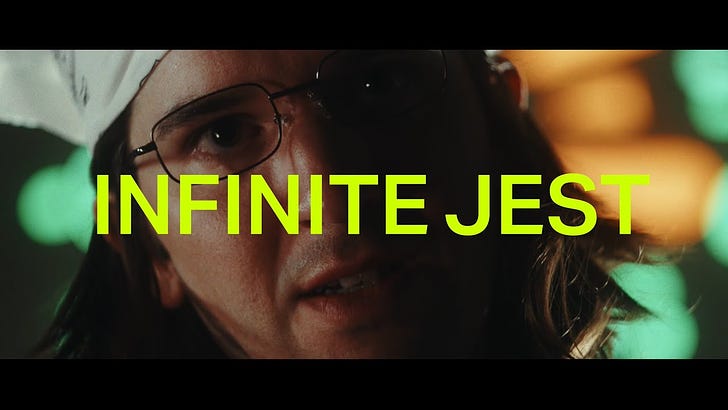It’s the holidays, the end of the year, a time for family joy but also familial challenges, and a short respite from work, but not before tomorrow’s early morning meetings and the inevitable deluge of last minute “to dos” before the Christmas week, when productivity will slow. One thing I love about this time of year is the time to read cozily, and to read a physical book or two (nothing that glows, beeps or otherwise alerts). But, as we head into this, my friends at must read website TPM laid this on me:
“As we continue to transition from the television era to the internet era, how we understand or interpret politics is destined to change. In the 1980s, culture and media critic Neal Postman showed how TV was changing our politics by reorienting political discourse around the demands of entertainment. How the internet is today changing our expectations of politics is still being determined, but if television conditioned us to value entertainment above all else, the internet’s sacred cow is attention — and unlike entertainment, that which is attention-grabbing does not need to make sense.”
Within minutes of reading this, I received a link from the David Foster Wallace listserv (still exists, still active!) that quotes actor/auteur/Deadpool Ryan Reynolds riffing on themes from Postman and Wallace, saying:
“Boredom is a very undervalued asset these days, too. We as a society just entertain ourselves to death 24 hours a day, seven days a week. The best ideas that I’ve ever had have always been born of boredom, where your mind is allowed to wander and go into that sort of stasis of being and not doing. You get weird thoughts that pop in and turn into ideas. And so if I’m not working, I look at that as a different form of work.”
Postman’s Amusing Ourselves to Death was published in 1985. Wallace dramatized those themes in 1996 with Infinite Jest, a Hamlet-inspired novel about addiction that imagines a future where a filmmaker creates something called “The Entertainment” that is so engrossing that anybody who watches it will forever want to do nothing else but watch it, to the point of dying, starving and drooling in a lounger in front of the screen.
My friends at TPM were talking about recent political assassinations where the politics of the alleged attackers seems ambiguous, at best. Not every assassin is John Wilkes Booth. Anyhow, it’s the holidays and we don’t want to dwell on assassination discourse. What interests me is the interaction of our need to be amused, even at the price of death or deathless, and the idea that what grabs us doesn’t have to make Anu narrative sense.
This is not new. This is Dada. Surrealism. Absurdism. Brecht’s Epic Theatre. Dadaists wanted to make unrepresentative art, helping to form the basis of abstract expressionism. Surrealists sought to plum the dream worlds of the psyche, where narrative cohesion is at best a suggestion. Brecht worried that the seductive properties of a good, well-told play could potentially immunize its audience from the themes, ideas and proposals that the author had in mind. His solution was to purposefully remind his audience they were in a theater, watching a performance, hoping that if he didn’t let them get too caught up in the story, they might have space to consider the ideas. Stories, he worried, can comfort us into obedience, subservience and even anhedonia.
Brecht’s epic theatre brings us back to Wallace. In Infinite Jest, The Entertainment is the ultimate danger, but the characters all deal with myriad addictions, to all sorts of drugs and drink, to sex, athletics and fame. Through these obsessions, they lose themselves.
James O. Incandenza, dead by the time the novel begins, was a filmmaker and founder of a tennis academy. He is the creator of The Entertainment and within the footnotes of the novel, his entire filmography is described. My favorite is:
“The Medusa v. The Odalisque” - B.S. Latrodectus Mactans Productions. Uncredited cast; zone-plating laser holography by James O. Incadenza and Urquhart Ogilvie, Jr.; holographic fight choreography by Kenjiru Hirota courtesy of Sony Entertainment-Asia; 78 mm; 29 minutes; balck and white; silent w/ audience-noises appropriated from network broadcast television. Mobile holograms of two visually lethal mythologic females duel with reflective surfaces onstage while a live crowd of spectators turn to stone. LIMITED CELLULOID RUN; PRIVATELY RE-RELEASED ON MAGNETIC VIDEO BY LATRODECTUS MACTANS PRODUCTIONS”
The Incandenza films are mostly shorts, never classically narrative and generally ambiguous. He frequently collaborates with Joelle van Dyne, also known as PGOAT (Prettiest Girl of All Time) and who works as a late night DJ named Madame Psychosis, a play on metempsychosis, which describes how souls reincarnate after death (the phrase is used prominently in James Joyce’s Ulysses.) van Dyne wears a veil most of the time, either because she was disfigured in an ugly incident involving acid or, in some interpretations, that her beauty is so distracting that other people cannot function normally around her. She stars in The Entertainment and the film is really just her looking warmly down on the viewer, receptively apologizing, perhaps for the sin of the viewer’s birth into an unforgiving world.
Wallace suggests that whatever our addictions, we are largely using them to escape boredom, a theme he tried to explore in his unfinished novel The Pale King, which is largely about working at the Internal Revenue Service. There, Wallace explores the idea that the willingness to experience boredom, and the courage not to run from it or repetitive tasks, creates potential for people to do great things, like organize an entire divided and complex society around something as complex and impenetrable as the federal tax code.
Now, the internet has given us vast choices of small entertainments to wile away our time and a lot of them don’t have to or need to make sense. We’ve cycled through dumping buckets of ice on each other’s heads to eating Tide Pods, to being “demure” to (ironically or not or both) falling in love with a guy who shot a man to make a point we still don’t fully understand.
Is any of it making us smarter, wealthier or happier? Maybe. Sometimes the nonsense gives us a remove to critique what’s going on, like the “bats and tea trays” of Lewis Carroll’s nonsense verses. And, sometimes there’s this:
Happy Holidays, all.



My younger daughter gets this! She totally grokked DFW. 💖
Look what my son ate!